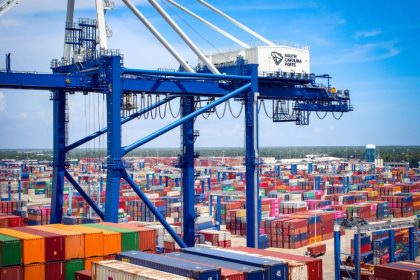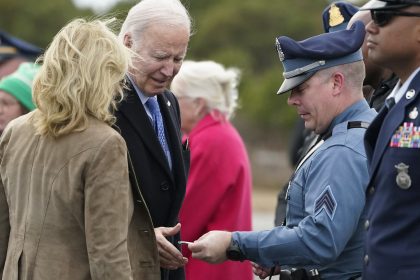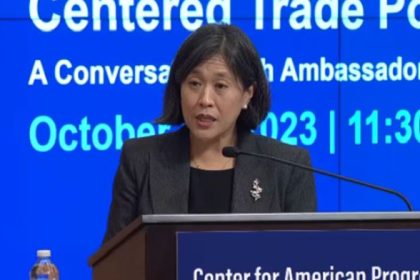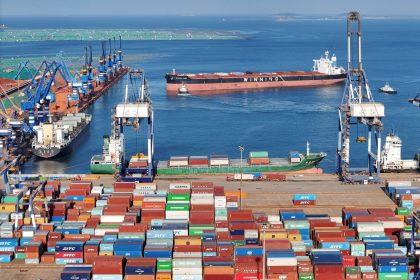US, Canada Demand Talks Over Mexican Energy Policies
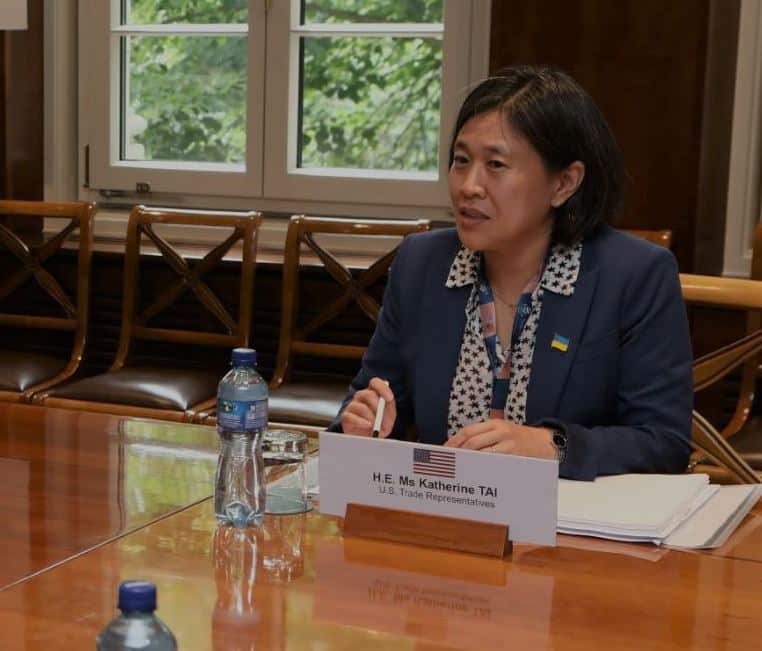
WASHINGTON — Just days after the second anniversary of the USMCA trade agreement, two of its three signers, the U.S. and Canada, are demanding dispute settlement talks with the third, Mexico, over domestic energy policies they say are undermining cross-border supplies.
The request, first announced by the Office of the U.S. Trade Representative on Wednesday, is the most serious trade dispute between the United States and Mexico since the trade pact — also known as the U.S.-Mexico-Canada Agreement — went into effect on July 1, 2020.
If the matter goes unresolved, it could ultimately lead to imposition of punitive tariffs by the Biden administration.
According to the U.S. Trade Representative’s office, the dispute centers on steps Mexico has taken that the United States believes undermine American companies and U.S.-produced energy in favor of Mexico’s state-owned electrical utility, the Comisión Federal de Electricidad, and state-owned oil and gas company, Petróleos Mexicanos.
Mexico’s alleged USMCA violations include, but are not limited to, amendments to Mexico’s Electric Power Industry Law that would prioritize the distribution of CFE-generated power over cleaner sources of energy provided by private sector suppliers, such as wind and solar.
They also include Mexico’s delays, denials, and revocations of U.S. companies’ ability to operate in Mexico’s energy sector, including with regard to renewable energy projects.
Combined, these actions appear to significantly roll back Mexico’s commitments, not only under the trade pact, but also under the Paris Climate Agreement.
“We have repeatedly expressed serious concerns about a series of changes in Mexico’s energy policies and their consistency with Mexico’s commitments under the USMCA,” said U.S. Trade Representative Katherine Tai.
“These policy changes impact U.S. economic interests in multiple sectors and disincentivize investment by clean-energy suppliers and by companies that seek to purchase clean, reliable energy,” she said.
“We have tried to work constructively with the Mexican government to address these concerns, but, unfortunately, U.S. companies continue to face unfair treatment in Mexico. We will seek to work with the Mexican government through these consultations to resolve these concerns to advance North American competitiveness,” Tai added.
Canada’s trade ministry later announced that it too was launching its own energy consultations with Mexico and “supporting the U.S. in their challenge.”
“Canada has consistently raised its concerns regarding Mexico’s change in energy policy,” said Mary Ng, Canada’s minister of International Trade, Export Promotion, Small Business and Economic Development, in a written statement.
“We agree with the United States that these policies are inconsistent with Mexico’s … obligations,” she said.
“We will always stand up for Canada’s energy sector which has taken a leadership role in the transition to clean energy in Mexico and supports thousands of workers across North America. We look forward to working with both Mexico and the United States to resolve this issue,” Ng added.
In an interview with Reuters, Luz Maria de la Mora, Mexico’s deputy economy minister, said she hoped for a “mutually satisfactory solution” to the dispute.
Though De la Mora said Mexico’s government would seek to argue that its energy policies are not in breach of the trade deal, she told Reuters during the interview that “We want to take advantage of this consultation phase … to see how we can reach a mutually satisfactory solution through an open, frank and constructive dialogue, which will allow us to overcome these differences.”
But with her conciliatory remarks, De la Mora appeared to be speaking from a different script than Mexico’s leftist President Andres Manuel Lopez Obrador, who on Thursday brushed off the complaints over his energy policy.
Obrador, who was a guest of President Joe Biden’s at the White House just last week, said at a news conference that his government is “acting in line with public interest, defending the Mexican people against greedy companies used to stealing.”
Obrador has accused his predecessors of destroying Mexico’s domestic energy market by opening it to foreign corporations.
Still, De la Mora this week appeared to be hanging her hopes on a positive outcome on the USMCA’s dispute settlement mechanism, which mandates talks and negotiations as the first stage of a multistage process.
“The dispute resolution mechanism is a very solid mechanism, it is a mechanism that allows the investor to have greater certainty and this is very positive for the business climate,” she told Reuters.
Under USMCA rules, the United States and Mexico will enter into consultations somewhere around the third week of August, unless the parties agree on an alternate timeline.
If they can’t resolve their difference through consultations within 75 days of the U.S. request, the United States can request the establishment of a dispute panel.
Dan can be reached at [email protected] and at https://twitter.com/DanMcCue.


















